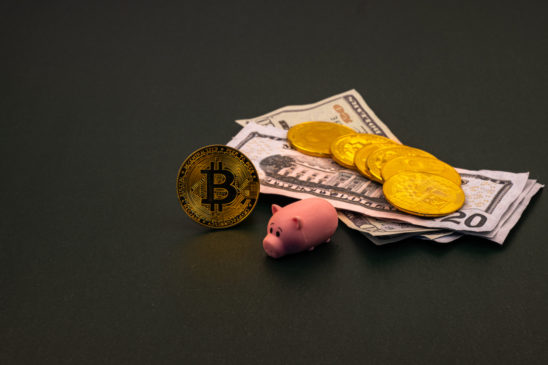The intricate dance between Bitcoin, crypto and real yields is becoming increasingly pronounced. As the world of traditional finance grapples with the implications of shifting real yields, the BTC and crypto market is not immune to these fluctuations.
For the uninitiated, the ‘real yield’ refers to the yield on US treasuries, adjusted for inflation. This metric is pivotal in understanding the broader financial ecosystem, and its movements can have profound implications for risk assets, including Bitcoin and other cryptocurrencies.
Higher Real Yields = Bitcoin And Crypto Down
Renowned analyst @tedtalksmacro recently shed light on this intricate relationship, stating, “An important correlation – BTC + US real yields. Simply, higher real yields drive investors to cash and fixed-income… and out of ‘riskier’ assets like BTC and stocks.” This observation underscores the delicate balance that Bitcoin and other cryptocurrencies maintain with the broader financial market.
The path of real yields is determined by two primary factors: inflation and nominal rates. With the Federal Reserve’s hiking cycle nearing its end, nominal yields are potentially at their zenith. However, the trajectory of inflation remains uncertain, and as @tedtalksmacro notes, it will “likely be the greater mover of real yields.”
Adding another layer of complexity, the US treasury’s recent influx of longer-dated issuance is exerting upward pressure on nominal yields, especially on the back-end. The 10-year, for instance, is trading at highs not witnessed since 2008.
On the topic of inflation, expectations lean towards a decline in the coming months. As @tedtalksmacro astutely points out, “If you have been following along, [this would be] conducive to higher real yields. Higher real-yields are bearish for risk-assets.” This observation is particularly salient for the crypto community, as falling inflation, counterintuitively, might spell trouble for risk assets like Bitcoin.
The Federal Reserve’s aggressive rate hikes aim to curb inflation. Yet, the unintended consequence of this strategy, combined with sustained high rates, could be a rise in real yields. This makes fixed-income assets more appealing, potentially diverting investments away from riskier ventures like stocks and altcoins.
The crypto community awaits Jerome Powell’s address this Friday with bated breath. As @tedtalksmacro anticipates, Powell is likely to persist with the ‘higher for longer’ rhetoric, a stance the FOMC has maintained since late 2021. “Higher for longer + falling inflation + fresh duration issuance = higher real-yields = lower risk assets,” concludes @tedtalksmacro.
Will BTC And Crypto Fall Due To Jackson Hole?
Keith Alan, founder of Material Indicators, draws attention to historical patterns and potential market reactions to Jackson Hole. “Remember when FED Chair Powell spoke from Jackson Hole last year and his hawkish tone triggered a 29% BTC dump that took 5 months to recover? JPow returns to JHole this Friday and there are some similarities in the PA we are seeing now and the PA we saw leading up to last year’s speech.”
Alan highlights the technical patterns observed in Bitcoin’s price movements leading up to Powell’s previous speech and the current scenario. However, he cautions against drawing direct parallels, emphasizing the changed macroeconomic conditions and Powell’s evolved communication style.
“To be clear, the similarities in the current PA, relative to last year’s PA do not mean that price will react the same way this time,” Alan states. He underscores the need for investors to be vigilant, yet not reactive, to the potential market volatility surrounding the upcoming Jackson Hole event. “We must expect JPow’s words to move markets.”
At press time, BTC traded at $26,589.
Featured image from iStock, chart from TradingView.com



